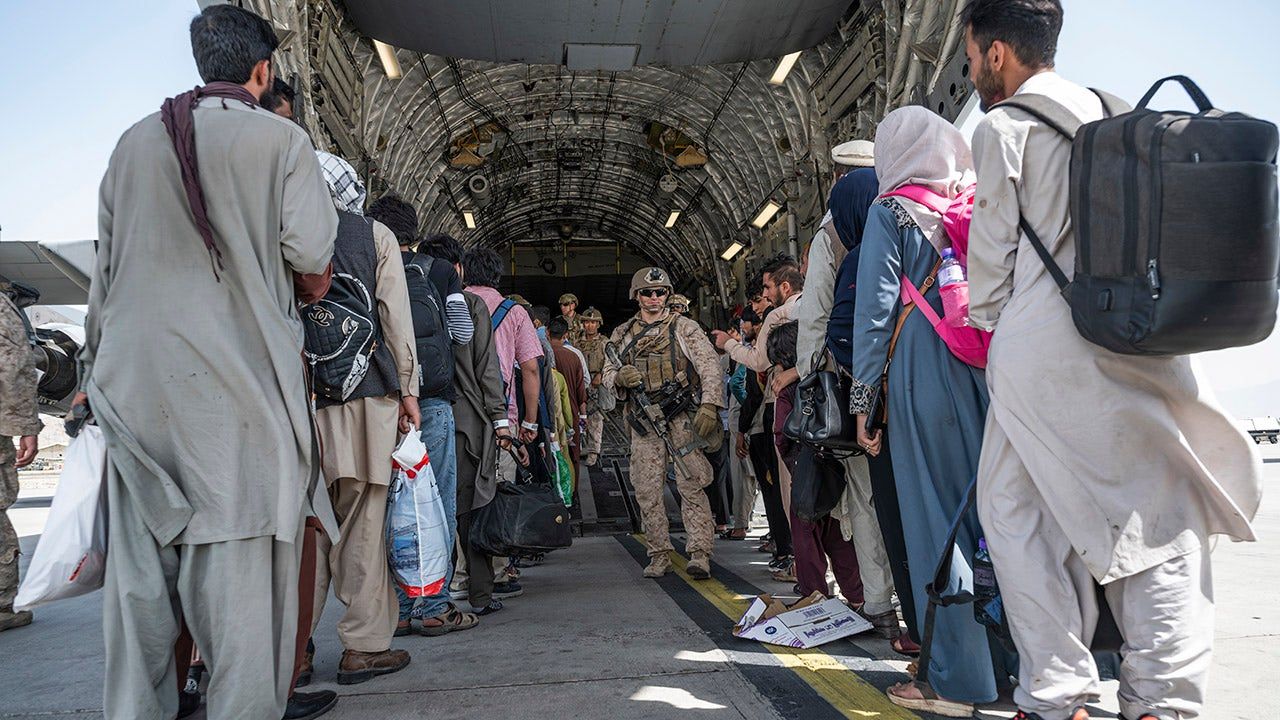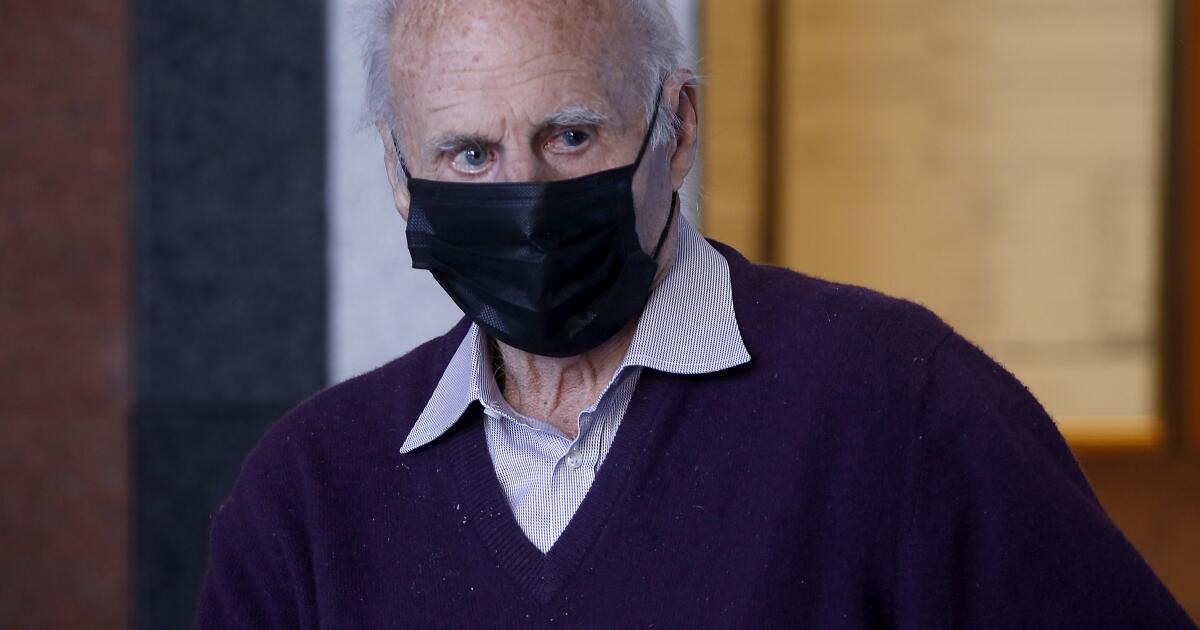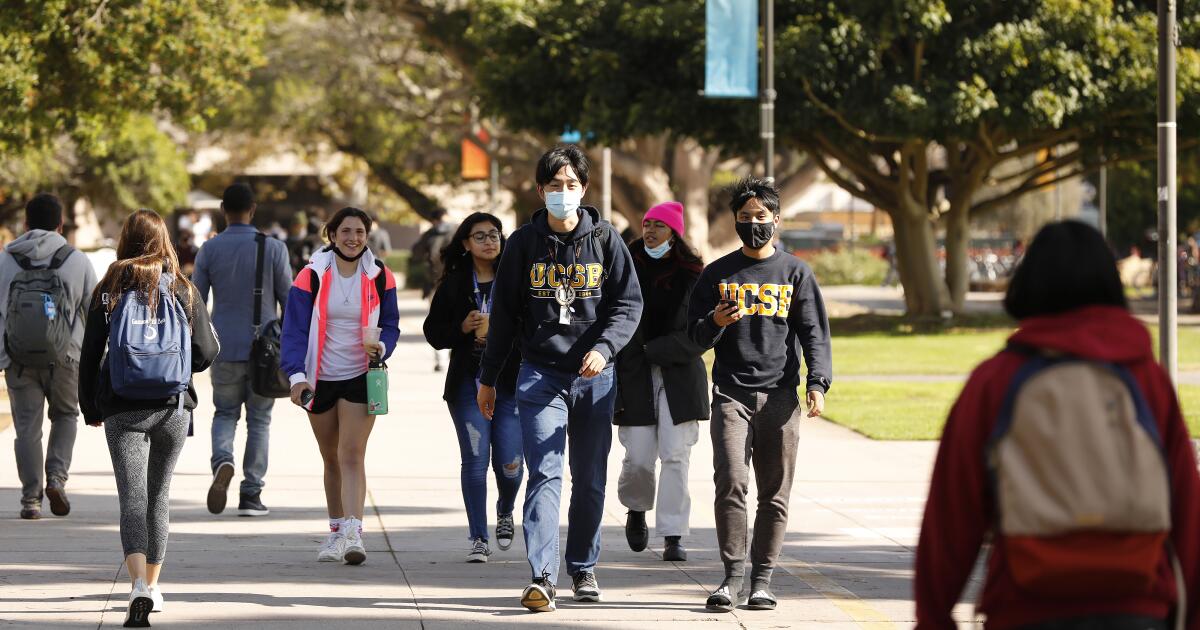The three years since the U.S. withdrawal from Afghanistan have been a deadly game of cat and mouse for employees and allies of U.S. and NATO forces left behind in Afghanistan under the Taliban regime. Among the de facto government's targets are thousands of Afghan prosecutors trained by U.S. personnel to enforce the rule of law and prosecute terrorists.
As the Taliban rapidly gained territory in Afghanistan in the summer of 2021, they released convicted terrorists from government prisons across the country. The Taliban had been carrying out deadly attacks on Afghan prosecutors for years before taking Kabul on August 15. The newly freed prisoners wanted revenge on the prosecutors who had put them behind bars.
Joe Maida IV was a former Texas prosecutor who supported the growth of the Afghan legal system within the country from 2006 to 2013 and worked on Afghan policy at U.S. Special Operations Command and with Special Operations and Counterterrorism at the Pentagon until 2019. He told Fox News Digital that “the Taliban continue to go after individuals who supported the Afghan government.” In addition to military personnel, Maida says the Taliban “are looking for terrorism prosecutors to exact revenge. They’re doing that by sending special teams into the provinces, but also by writing letters to mosques to identify these individuals, who then disappear.”
AFGHAN DIPLOMAT SHUNS TALIBAN GOVERNMENT BY REFUSING TO LEAVE POST AND CALLS ON WEST TO 'MOBILIZE' AGAINST ABUSES
Newly recruited personnel joining the Taliban security forces demonstrate their skills during their graduation ceremony in Herat on February 9, 2023. The Taliban are targeting the country's former military personnel “on a daily basis,” a former military intelligence officer said in the new report. (Mohsen Karimi/AFP via Getty Images)
Saeed, who spoke to Fox News Digital on condition that he be identified by a pseudonym, is the executive director of the Afghan Prosecutors Association and was a prosecutor in the Afghan Attorney General's Office. Saeed provided an Excel file that the Afghan Prosecutors Association has compiled with details about 32 prosecutors and their family members who have been killed since July 5, 2021.
The manner of the victims' deaths is gruesome. Most were shot dead, either in a public place or in their homes. Some were killed by anonymous gunmen, while others were specifically killed by the Taliban. Two prosecutors were killed with improvised explosive devices. Others were arrested and tortured. Three victims were women. More than a third of the entries included photos of the victims after their death.
Saeed said another 100 prosecutors have been injured since the US withdrawal and another 50 are believed to be “locked up in Taliban jails and their fate is unknown.”
Saeed estimates that around 1,000 of the 3,800 prosecutors believed to have been in office before August 2021 have fled to European countries. He said 1,500 of those still trapped in Afghanistan “need urgent assistance.” Saeed believes around 500 prosecutors fled to Pakistan, Tajikistan and Iran, where they live in “a state of desperation” amid harassment and forced deportations.
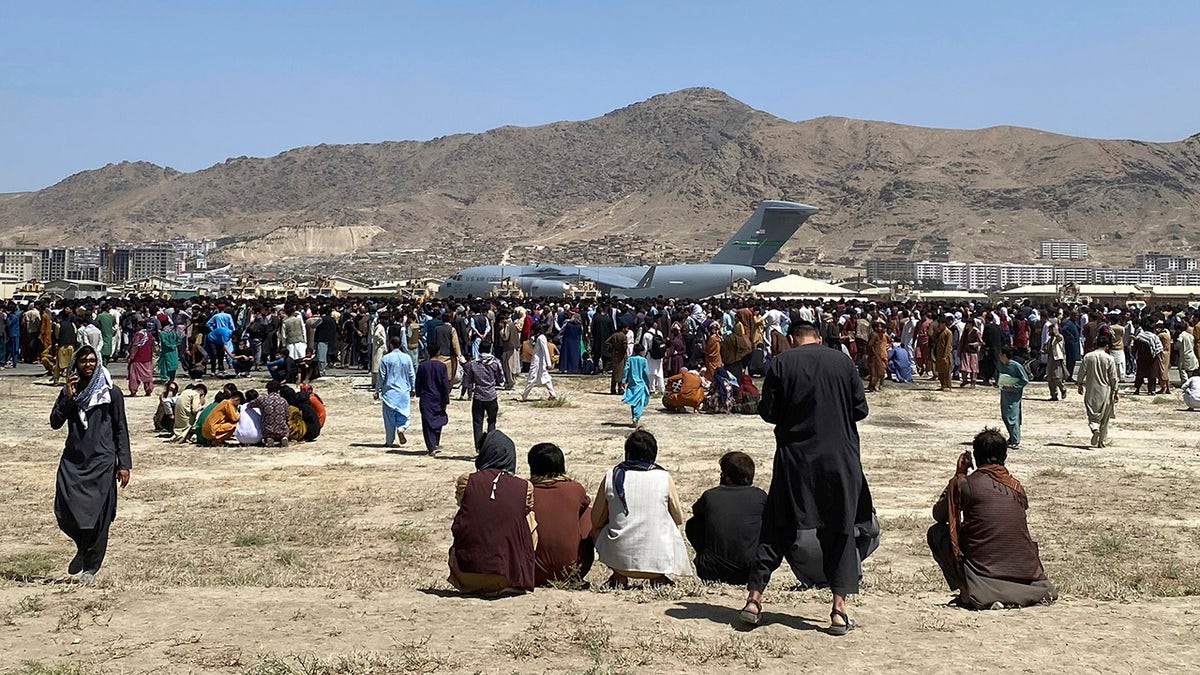
Hundreds of people gather near a U.S. Air Force C-17 transport plane at a perimeter of Kabul International Airport, Afghanistan, Monday, Aug. 17, 2021. (AP Agency)
Legal professionals protecting women's rights have also seen their efforts quashed under the Taliban regime. Amina, one of thousands of Afghan legal professionals in hiding, spoke to Fox News Digital on the condition that her name be used under a pseudonym. Amina said she was “on the cusp of qualifying to be a lawyer” when the government collapsed. In 2021, Amina was working as a deputy attorney in Kabul courts, focusing on domestic violence cases.
According to a report by the United States Institute of Peace, divorce is no longer a legal option for women in Afghanistan as the Taliban issued a blanket revocation of all divorce decrees granted by the previous Afghan government in March 2023. With domestic violence shelters closed since August 2021, women experiencing violence at the hands of their husbands are now taken to Taliban prisons, where some Afghan women have reportedly been raped and even killed by the Taliban.
Amina says she has felt personally responsible for not having “done enough to educate women about human rights.” She now dedicates herself to educating Afghan women online and offering mental health consultations to Afghans in crisis. “This is the time when my people need me,” she explained.
AFGHAN WOMEN NOT ALLOWED TO ATTEND UNCONDUCTED MEETINGS WITH TALIBAN; “GIVING IN TO TERRORIST DEMANDS”

In this Aug. 15, 2021, file photo, Taliban fighters take control of the Afghan presidential palace in Kabul, Afghanistan, after President Ashraf Ghani fled the country. (AP Photo/Zabi Karimi)
Many US-based attorneys have joined the fight to support Afghan prosecutors, including East Baton Rouge District Attorney Hillar Moore. As a member of the Association of Prosecutors (APA), Moore has been supporting prosecutors in their fight to stay alive in Afghanistan. Moore told Fox News Digital that the APA is in contact with “hundreds of prosecutors who are now asking for help.” She estimates that about 20% of Afghan prosecutors and judges were women and are at particular risk inside their country.
Unlike military translators and employees of U.S. institutions, prosecutors did not directly provide services to the United States and are not eligible for special immigrant visas. Legislative efforts to expand access to the SIV program, including the Afghan Adjustment Act and the Afghan Allies Protection Act, have failed to gain approval in Congress.
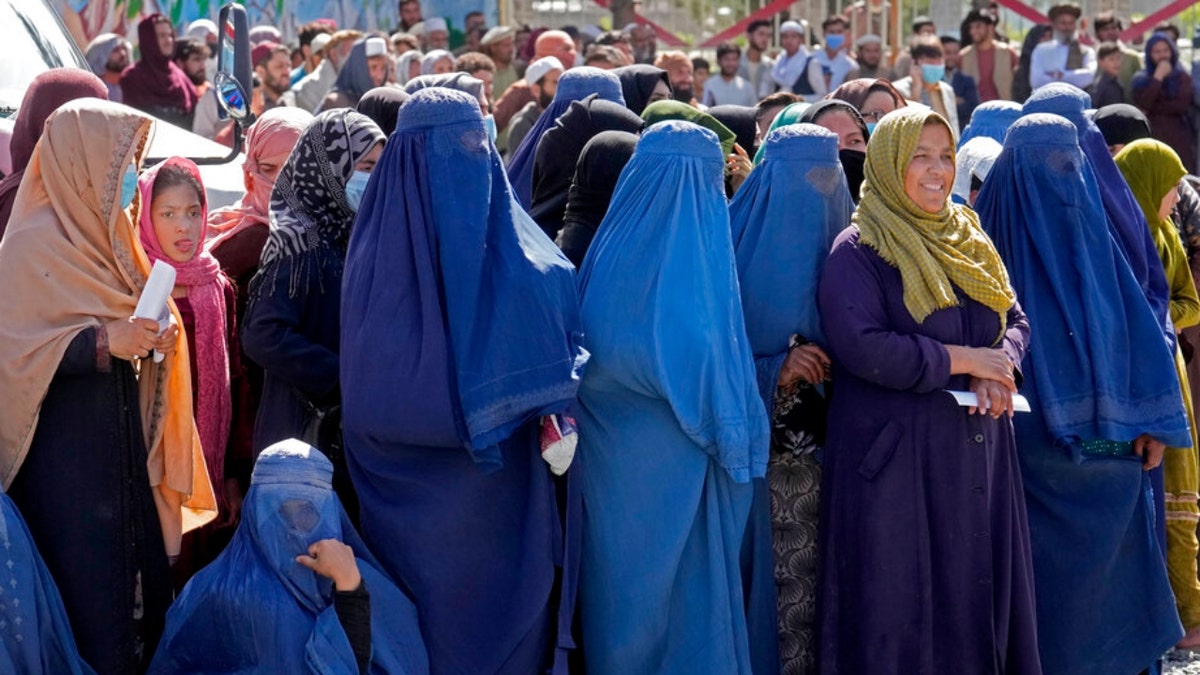
Afghan women wait to receive food distributed by a humanitarian aid group in Kabul, Afghanistan, in April 2022. (AP Photo/Ebrahim Noroozi)
BLINKEN PRESSURED TO FREEZE AID TO AFGHANISTAN AFTER REVELATION THAT NEARLY $300 MILLION MAY HAVE GONE TO TALIBAN
Some lawmakers have expressed concerns about the vetting process for Afghan refugees. Moore explained that prosecutors “have been repeatedly vetted” and have “passed background checks that most American citizens would never be able to pass,” supporting his view that “there is little to fear and much to gain by helping these individuals resettle in the United States.”
To help prosecutors get to safety three years after the U.S. withdrawal, Moore said the APA is raising funds to relocate the 1,500 prosecutors living in hiding in Afghanistan to safe third countries. The estimated cost will be about $15 million, or about $10,000 per family.
There is some hope that the government will provide support for prosecutors. Moore said the State Department “has been more receptive to the inclusion of former prosecutors, especially women,” in the U.S. Refugee Admissions Program (USRAP). Moore said the APA has been working to prepare prosecutors’ applications for review.
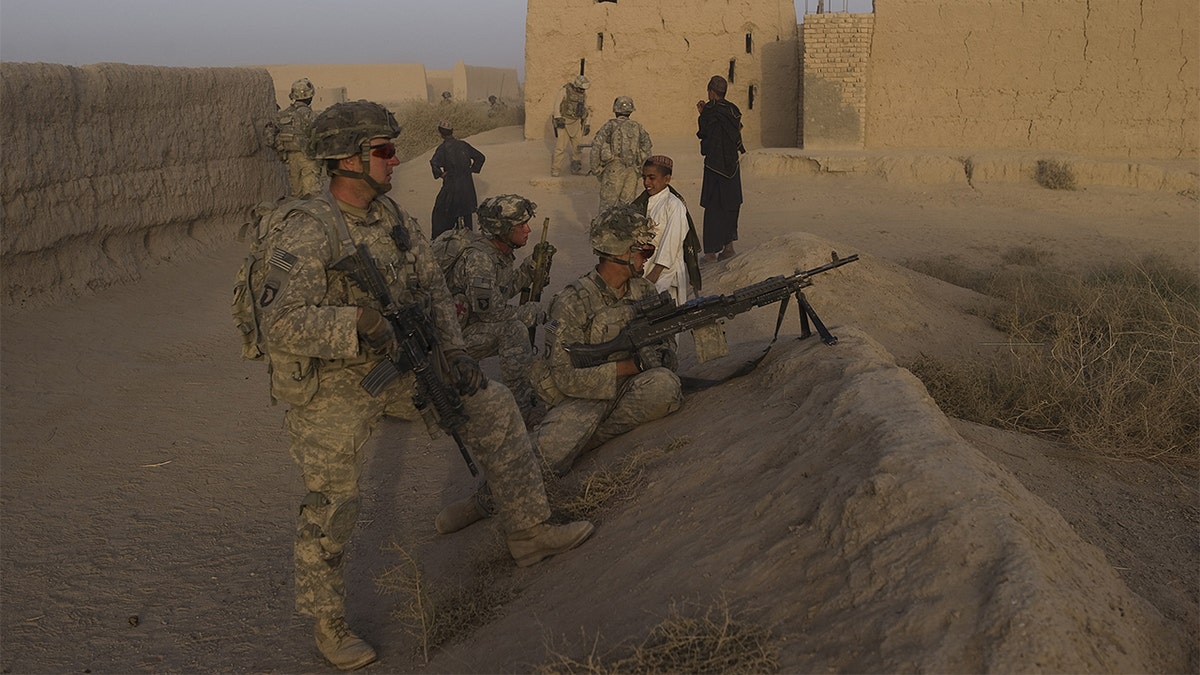
U.S. soldiers from Chaos Company's 2nd Platoon, 1-75 Cavalry, 2nd Brigade, 101st Airborne Division, take up position while on patrol in Didar village in Zari district of Kandahar province, southern Afghanistan, Oct. 25, 2010. (MASSOUD HOSSAINI/AFP via Getty Images)
A State Department spokesperson did not respond to questions about whether it is working to include prosecutors in the USRAP. The spokesperson said the State Department “continues to[s] “We are focused on honoring our promises to these allies and are grateful to Americans from all walks of life who have helped us welcome more than 160,000 Afghans to communities across the United States over the past three years.”
Three months ago, Saeed was referred to the Priority-1 program within USRAP and recently received notification of acceptance. He is now awaiting his interview and at least 12 to 18 months of processing time.
Saeed desperately yearns for peace. In 2020, the Taliban who released him from prison attacked him with the intention of killing him. After the Taliban searched his home in December 2022, he fled to Pakistan to protect himself and his family. Saeed says he still lives in “a desperate and problematic situation” inside Pakistan, where the cost of living is high and refugees are unable to work or seek education for their children.
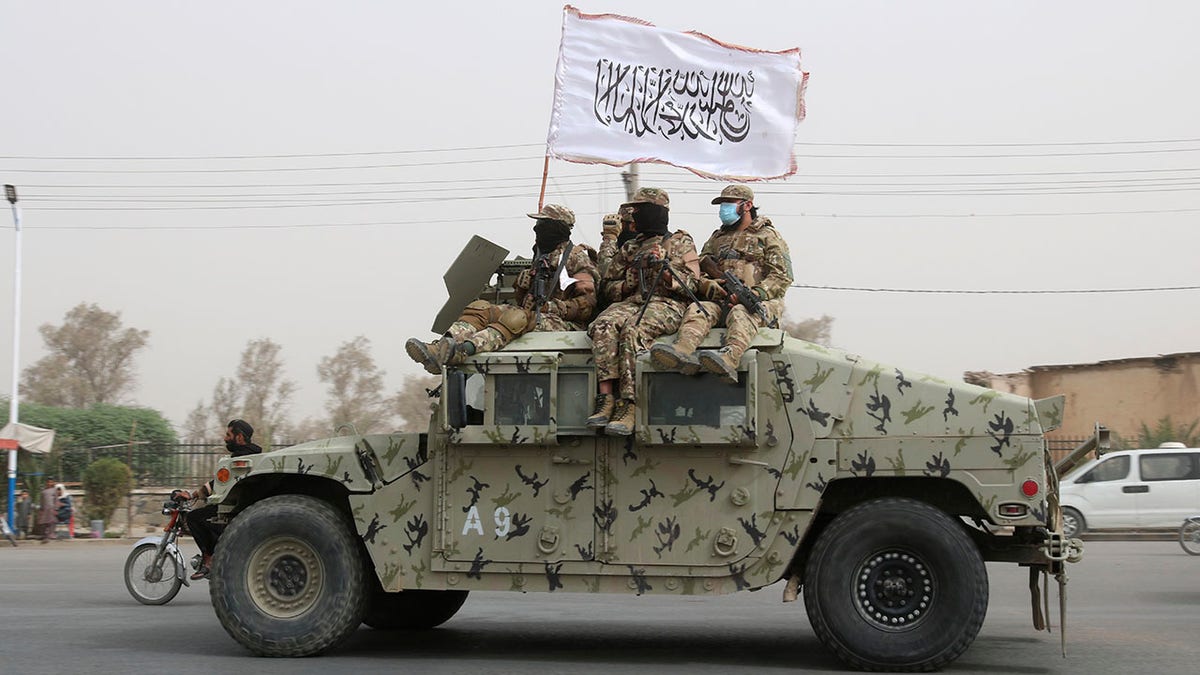
Taliban fighters patrol the road during a celebration marking the second anniversary of the withdrawal of U.S.-led troops from Afghanistan, in Kandahar, south of Kabul, Afghanistan, Tuesday, Aug. 15, 2023. (AP/Abdul Khaliq)
Threats of deportation continue to loom, with Pakistan set to deport thousands of Afghan refugees who entered the country illegally in November 2023. While Afghans with letters verifying they had a pending application for a safe pathway to the U.S. were supposed to be protected from deportation, a source who asked to remain anonymous told Fox News Digital that in July, Pakistan deported some Afghans with USRAP referrals. A State Department spokesperson told Fox News Digital that they have “no comment on this specific incident.”
CLICK HERE TO GET THE FOX NEWS APP
The issue of helping prosecutors is personal to Kevin Rardin, a career prosecutor in the Memphis District Attorney's Office who also served as a judge advocate in the Army Reserve. As legal counsel to the commander of the U.S.-NATO training mission, Rardin was a mentor to his Afghan counterparts. He told Fox News Digital that “the worst days of my deployment came 13 years after I left the country, in August 2021.”
“You don't have to be a lawyer to understand that this is wrong. You just have to be a decent person with moral principles,” Rardin continued. “When I was in Afghanistan, the Afghans protected me. They kept me out of trouble, introduced me to their culture. They accepted me, I ate with them. They included me. And now we're up and leaving. You can't call yourself a human being and do that.”

